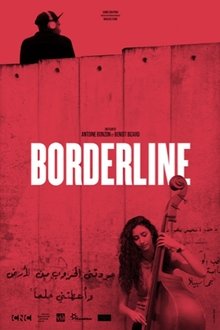Where Olive Trees Weep offers a searing window into the struggles and resilience of the Palestinian people under Israeli occupation. It explores themes of loss, trauma, and the quest for justice.
Related Movies

Journey into Gaza (2024)
“In Gaza you have to get there in the evening, in spring, lock yourself in your room and from there listen to the sounds coming in through the open window.... It's 2018. I am 25 years old and a foreign traveler. I meet young Palestinians my age..”

BETWEEN (NaN)
Initially embarking on an unplanned personal filmmaking project, Ilias Boukhemoucha finds himself drawn to the overlooked corners and marginalized communities within Canadian cities.
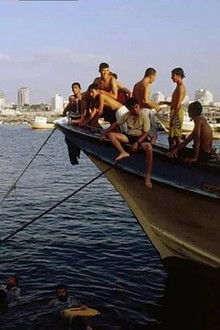
Mahdi Amel in Gaza: On the Colonial Mode of Production (2024)
Assassinated Lebanese intellectual Mahdi Amel — often dubbed “the Arab Gramsci” — famously said: “He who resists is never defeated.” What use is his thought to us today, and what is our responsibility as image makers to Gaza?

Waltz with Bashir (2008)
An Israeli film director interviews fellow veterans of the 1982 invasion of Lebanon to reconstruct his own memories of his term of service in that conflict.

Detained (2001)
Najwa, Nawal, and Siham, three Palestinian widows, live with their 11 children in a house on Shuhada Street in Hebron. Their house lies on the border; the façade is under Israeli occupation, the Palestinian Authority controls the back. At the entrance to the house is a military post; on the roof the Israeli army has placed a watch point over Palestinian Hebron. The three women, trapped in the middle and constantly surrounded by Israeli soldiers, carry on their difficult lives in a perverse situation: the occupation becomes a routine, the absurd becomes a given. This is the story of an occupation that extends to the staircase and the roof of the house, where it encounters poverty, loneliness, pain, but also the small joys of everyday life. This is an internal prison, the external one is the ongoing occupation.

Here and Elsewhere (1976)
Here and Elsewhere takes its name from the contrasting footage it shows of the fedayeen and of a French family watching television at home. Originally shot by the Dziga Vertov Group as a film on Palestinian freedom fighters, Godard later reworked the material alongside Anne-Marie Miéville.

War Photographer (2001)
Documentary about war photographer James Nachtwey, considered by many the greatest war photographer ever.
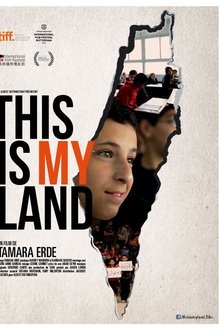
This Is My Land (2014)
Israeli-born director Tamara Erde visits six independently-run Israeli and Palestinian schools to investigate how history is taught in this contested region.

The Judge (2017)
A verité legal drama about Judge Kholoud Al-Faqih, the first woman appointed to a Shari'a court in the Middle East, whose career provides rare insights into both Islamic law and gendered justice.
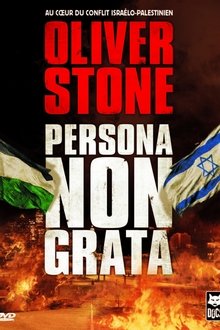
Persona Non Grata (2003)
2003 documentary film produced by Oliver Stone for the HBO series America Undercover about the conflict in occupied Palestine. He speaks with Ehud Barak and Benjamin Netanyahu, former prime ministers of Israel, Yasser Arafat, late president of the Palestinian National Authority, and various Palestinian activists resisting the oppression of the zionist regime.

To Kill a War Machine (2025)
Through real-time bodycam and phone footage, frontline activists take audiences along on their audacious raids to tear down arms factories around the UK. Since 2020, direct action group Palestine Action have documented their operations to dismantle the companies and infrastructure supplying weapons to the ongoing genocide in Gaza.
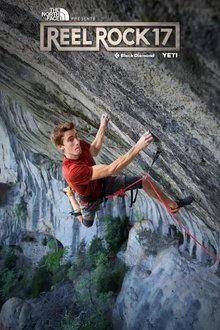
Reel Rock 17 (2023)
Three new films featuring the biggest climbing and adventure stories of the year: ADN - SEB BOUIN: 29-year-old French sport climber Seb Bouin quietly climbed the elite ranks, culminating in his attempt to establish a long slope in a cave overhang in the Gorges du Verdon in France / CLIMBING RESISTANCE: In the hills torn by the Palestinian conflict, young Palestinians embrace rock climbing as a necessary respite from the oppression of the occupation Israeli. American writer and climber Andrew Bisharat visits the West Bank to explore his own roots and the power of climbing to transcend existence / BURNING THR FLAME: Big wall free climbing masters Babsi and Jacopo seek their most Biggest challenge so far: a free ascent of "Eternal Flame", a 3,000 foot route on the legendary Nameless Tower in Pakistan's Karakoram Range.
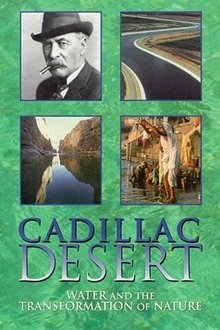
Cadillac Desert: Water and the Transformation of Nature (1997)
Documentary on water usage, money, politics, the transformation of nature, and the growth of the American west, shown on PBS as a four-part miniseries.

So They Know We Existed (2021)
When she heard the explosions around her, 15-year-old Sma Ahel immediately picked up her phone. 'I removed the password from my phone so that if we didn't make it out, and we were killed, people would know what happened to us. So they know we existed.' In their own words and images, this short documentary tells the story of a Palestinians trapped in deadly fighting between Israel and Hamas during an 11-day war in May 2021.

Three Promises (2023)
Yousef Srouji’s childhood in Palestine wasn’t something that he and his parents spoke of as a family, so when he found a box of his mother’s home videos from the early 2000s, an especially perilous and tumultuous period in the West Bank, the tapes became a means for remembering and comprehending a painful past. The stories she captured illuminate the nature of life in a war zone, and familial bonds that cannot be broken. – Bedatri Choudhury (DocNYC)

Simon Shaheen: A Musical Journey (2019)
A Musical Journey is an intimate portrait of the Palestinian oud and violin virtuoso Simon Shaheen and his influential career as composer, performer and educator. Born into a musical family and educated at the Academy of Music in Jerusalem, Shaheen arrived in America in 1981 to a landscape where traditional Arab music was little known. His passion for and commitment to sharing the music’s complexities come to life as he teaches and performs in vibrant musical performances that energize the film.

Fadia’s Tree (2022)
While millions of birds migrate freely in the skies above, Fadia, a Palestinian refugee stranded in Lebanon, yearns for the ancestral homeland she is denied. When a chance meeting introduces her to the director, Sarah, she challenges her to find an ancient mulberry tree that once grew next to her grandfather’s house in historic Palestine, a tree that stands witness to her family’s existence.
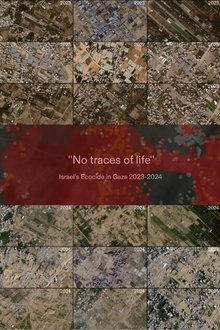
No Traces of Life (2024)
Building on Forensic Architecture’s previous investigation into herbicidal warfare and its effects on Palestinian farmers along the eastern perimeter of the occupied Gaza Strip, this investigation marks Land Day in Palestine by examining the systematic targeting of orchards and greenhouses by Israeli forces since October 2023. Our analysis reveals that this destruction is a widespread and deliberate act of ecocide that has exacerbated the ongoing catastrophic famine in Gaza and is part of a wider pattern of deliberately depriving Palestinians of critical resources for survival.
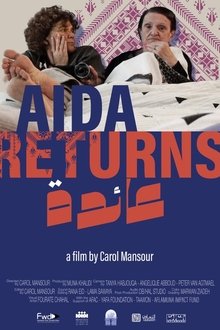
Aida Returns (2024)
A poignant, sometimes sad, sometimes painful, sometimes humorous, often absurd story of a multiple journey: the journey of loss as the director’s mother Aida struggled with losing herself to Alzheimer’s disease, but finding solace in her repeated “returning” to the Yafa and Palestine of her youth; the journey of the loss of a parent; and the ultimate return journey back to Yafa where Aida would finally find rest and be herself once more.
